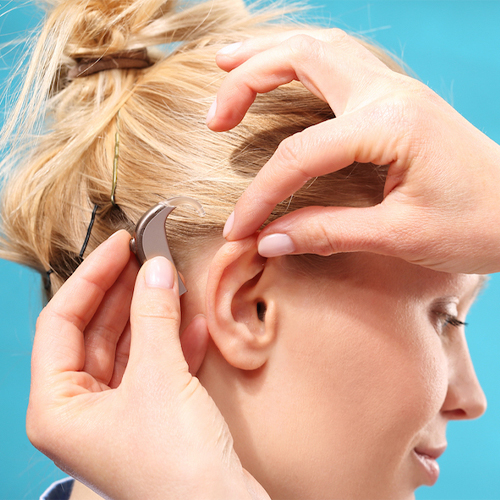Why do people use Hearing Aids?

Hearing aids are life-changing devices that help individuals with hearing loss regain their ability to hear and engage with the world around them. While hearing loss is common, especially with age, it can significantly impact one’s daily life, from communication challenges to social isolation. Below, we delve into why people use hearing aids and how they make a difference in the lives of those who need them.
1. Improved Hearing and Communication
One of the primary reasons people use hearing aids is to amplify sounds and improve hearing clarity. Whether it’s hearing a conversation in a noisy environment or understanding speech on the phone, hearing aids help individuals catch every word, enhancing communication. For people with hearing loss, communication can become exhausting, as they may miss parts of conversations or misunderstand others. Hearing aids make it easier for them to engage in social interactions, making them feel more connected and less isolated.
2. Better Quality of Life
When hearing loss occurs gradually, individuals often adapt by withdrawing from social situations or avoiding conversations, which can lead to depression and anxiety. By improving hearing ability, hearing aids allow people to participate in social gatherings, enjoy conversations, and take part in activities they might have avoided before. This significantly boosts their confidence and overall quality of life. Whether it’s attending family events, watching TV, or listening to music, hearing aids help restore enjoyment in everyday moments.
3. Increased Safety
Hearing is an essential sense for staying safe in everyday life. From hearing a car horn to noticing an approaching emergency vehicle, hearing aids enhance a person’s ability to detect environmental sounds. People with untreated hearing loss might not hear important alerts, which can pose safety risks. By amplifying external sounds, hearing aids ensure that individuals are more aware of their surroundings, increasing their safety, especially when out in public or crossing busy streets.
4. Cognitive Health
Untreated hearing loss has been linked to an increased risk of cognitive decline and dementia. This is because when the brain is not receiving adequate auditory stimulation, it may start to “retrain” itself to focus on other senses, which could lead to atrophy in cognitive function. Hearing aids help by maintaining the brain’s connection to sound, keeping the auditory pathways active and preventing the potential cognitive decline associated with untreated hearing loss. Several studies show that people with hearing aids experience better cognitive health, as they continue to engage with the world around them.
5. Reducing Fatigue and Strain
Constantly straining to hear can be exhausting. People with untreated hearing loss often find themselves mentally drained after a social gathering or even a day at work. Hearing aids provide a significant reduction in listening effort, allowing individuals to focus on conversations and reduce the mental fatigue that comes with trying to hear and understand sounds. This mental ease contributes to less stress and greater energy levels, allowing individuals to be more productive and involved in various activities.
6. Social and Emotional Benefits
Hearing loss can lead to feelings of frustration, embarrassment, and even isolation, as individuals may feel they cannot keep up with conversations or participate in group activities. Hearing aids can drastically improve social engagement, helping individuals feel more confident in both personal and professional settings. By making it easier to hear and understand, hearing aids allow people to foster and maintain relationships, whether with family, friends, or coworkers.
7. Customizable Features for Different Needs
Today’s hearing aids are equipped with a variety of customizable features to meet individual needs. Whether it’s adjusting volume levels, enhancing speech clarity, or reducing background noise, hearing aids are designed to work with different types of hearing loss. With advancements in technology, some models even allow users to control their hearing aids via smartphone apps, giving them more control over their hearing experience.
Conclusion: Hearing Aids are More Than Just Devices – They’re Tools for a Better Life
Hearing aids do far more than just amplify sound; they restore connection, confidence, and independence for people with hearing loss. Whether it’s improving communication, enhancing quality of life, ensuring safety, or preventing cognitive decline, hearing aids offer a world of benefits. If you or a loved one are experiencing hearing loss, it’s essential to explore hearing aid options to regain the joy of hearing and improve overall well-being.
Don’t let hearing loss limit your potential. Invest in a hearing aid today and experience the difference it can make!
